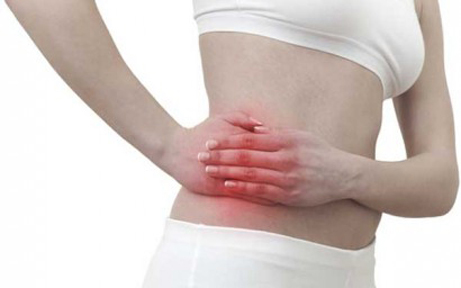|
 Kidney
disease is preventable : Kidney
disease is preventable :
Not curable
by Carol Aloysius
Excerpts...
Q: Kidney diseases are spreading in Sri Lanka. What do you
estimate to be the increase in the next 10-20 years?
A: No proper consensus has yet been done for the whole island.
However, the incidence appears to be increasing. It may affect 10 to 15%
of the adult population in the country within the next 10 years.
Q: What are the causes?
A: It is probably due to the screening programmes conducted in
most hospitals, and more vulnerable individuals coming for these tests
due to awareness raising. Other possible reasons are the rapid spread of
diabetes mellitus, wide usage of agrochemicals and fertilizer as well as
certain unidentified factors.
Q: What age groups are vulnerable to the disease?
A Kidney disease can affect any person. But the causes seems vary
depending on the cause. For example diabetic kidney failure occurs after
5 to 10 years of poor blood sugar control. Therefore, it is commoner
among diabetic patients after 5 to 10 years of the disease. Majority of
kidney patients world over and in Sri Lanka are victims of diabetes.
Other causes include hypertension, glomerulonephritis, polycystic kidney
disease, kidney stones, infections and drug induced kidney damage. There
is a group of patients who do not have any identifiable cause and these
patients are found only in certain geographical regions. The latter
group of patients are labelled as kidney disease of uncertain aetiology
(CKD-u).
Q: Are there different forms of kidney diseases? What are the
types that are most prevalent in Sri Lanka?
A: Mainly there are two forms. Short term (acute kidney
injury) and long term (chronic kidney disease). Acute kidney injury is
potentially reversible if treated early and appropriately. Main causes
of acute kidney injury include dehydration, toxins such as snake venom
and blockage to urine flow. Minority of acute patients can go in to
chronic form of the disease. Chronic kidney injury is a slow and
irreversible kidney damage. This occurs over months to years and usually
happens without symptoms.
 Kidney
diseases have leaped in numbers both globally and in Sri
Lanka, and likely to increase in the next decade or so. The
increasing prevalence of diabetes mellitus, wide use of agro
chemicals and fertiliser, and more individuals attending
screening programmes are all contributory factors. In
addition, there is also kidney disease of uncertain
aetiology CKD-u, diagnosed in persons who don't have
identifiable causes. To find out more about these diseases
and their causes Sunday Observer spoke to Consultant
Nephrologist Sri Jayawardenepura Hospital, Dr Chintana
Galahitiyawa Kidney
diseases have leaped in numbers both globally and in Sri
Lanka, and likely to increase in the next decade or so. The
increasing prevalence of diabetes mellitus, wide use of agro
chemicals and fertiliser, and more individuals attending
screening programmes are all contributory factors. In
addition, there is also kidney disease of uncertain
aetiology CKD-u, diagnosed in persons who don't have
identifiable causes. To find out more about these diseases
and their causes Sunday Observer spoke to Consultant
Nephrologist Sri Jayawardenepura Hospital, Dr Chintana
Galahitiyawa
|
Q: Where do you find the highest incidence of kidney diseases
in general?
A: North Central Province, as it has highest incidence of CKDu
patients in addition to patients with usual causes.
Q: Is kidney disease a chronic ailment?
A: Yes. The chronic form of the disease manifests over the
years. Therefore it can remain unnoticed and without symptoms till late
stages. The development of symptoms is also slowly progressive and
mostly non specific.
Q: What are the symptoms?
A: No significant symptoms occur till later stages. Symptoms
are mainly due to accumulation of toxic metabolites in the body. Example
loss of appetite, generalized body itch, sleeplessness, nausea, vomiting
and generalized body weakness.
They can have anaemia, reduced urine production and swelling of the
body, breathlessness due to water congestion in lungs and increased
acidity in blood, electrolyte imbalances such as high potassium levels
and calcium deficiency.
Q: What are the most adverse impacts the disease has on the
human body?
A: generally patients become very weak. Cardiac rhythm
complications due to electrolyte imbalances, renal bone disease and bone
marrow suppression due to high toxin levels. Chronic kidney disease
patients are more vulnerable for coronary artery disease (heart attacks)
and heart failure. Advanced kidney disease patients become dark in
complexion due to pigmentation changes.
Q: Can it lead to death?
A: Yes. Majority of advanced kidney disease patients die of
heart attacks. Other causes include severe lung congestion, heat rhythm
irregularities and brain malfunction due to high toxin levels.
Q: Can it be prevented? Cured ?
A: Chronic kidney disease is not curable. But it is
preventable. Usually early detection of kidney damage and proper
treatment might prevent or retard the progression and prevent or delay
the kidney failure. Patients can live on regular haemodialysis (blood
purification treatment) or suitable patients can have a kidney
transplant. Technically speaking transplanted patients can be called
'cured' as they have a functioning kidney.
Q: What is the treatment?
A: Treatment depends on the cause of kidney disease. Some
diseases are treated with medicines. Certain patients where the disease
is due to surgical reasons such as blockage to urine flow can be treated
with surgery.
Transplant is the ultimate cure for the kidney failure as it gives a
well functioning kidney and most of the symptoms and complications of
kidney failure are reversed. More importantly patients get more freedom
to enjoy their normal life without restrictions on water intake and
food. Finding matching donors is the problem.
Q: A great deal of attention is now being given to Chronic
Kidney Disease of Unknown Aetiology ( CKDu) which has now been re-named
Chronic Kidney Disease of multi -factorial origin. Is this because the
pattern of the disease has changed? Is it a new disease?
A: CKDu is not similar to any of the recognized diseases to
date. It has its own features and appears both biochemically and
histologically a different entity. There are similar disease patters
observed in other parts of the world; i.e Some areas in India, Balkan
area in Europe.
Q: Where is it most prevalent in Sri Lanka?
A: Highest prevalence is reported in Anuradhapura and
Polonnaruwa district. CKDu in Sri Lanka has shown clustering of cases in
some parts of the North central province but it has been recognized in
other areas as well, e.g. Uva province, Wayamba province and some parts
of southern province.
Q: Could you tell us more about this disease, its symptoms and
causes?
A: Histopathologically CKDu is classified as a 'tubulo-interstitial'
disease.
The damage mainly occurs in the supporting structure of the kidney
tissue initially and later it spreads throughout. Protein leakage is not
marked and high blood pressure is not commonly seen among this group of
patients. Progression is slow and some studies have shown preponderance
in middle aged males. Most of the patients reported are farmers. Their
symptoms are quite late and they present at advanced stages of the
disease.
Q: There has been a mixed response to the reasons given for
this spread in these districts in the report. Some scientists and
medical personnel say it is due to contaminated drinking water, high
fertiliser use or the unhealthy life styles. Others say that hard metals
in the water, like phosphate, iron etc is the only cause. What is your
opinion?
A: Finding a cause for this illness is both important and
challenging. My opinion is we should minimize exposing our bodies to all
these toxic compounds till scientists come up with the confirmatory
evidence.
Q: What is the treatment given to patients with CKDu? Does it
vary from patient to patient? On the severity of the disease?
A: Yes, each individual patient needs specific regimen of
treatment depending on their age, disease stage and the degree of
complications exist.
There is no specific treatment available for CKDu. The current
management plan is to educate the patient and the family and to give
supportive treatments to minimize the progression of the disease.
Q: How important is dialysis in extending the life of these
kidney patients?
A: Patients have dialysis therapy when they reach end stage
kidney disease. . Ideally this treatment should be offered as a bridge
to kidney transplant for the suitable patients. For patients who do not
qualify for transplant can go on lifelong peritoneal or haemo (blood)
dialysis.
Q: Are there enough dialysis machines to meet the requirements
of all those needing them?
A: Although dialysis facility has improved immensely in recent
years, we still don't have enough machines and trained staff to serve
all our patients who need them. We need to increase the number of
working machines especially in the areas of high disease burden. At Sri
Jayewardenepura hospital we have 10 machines working in three shifts. We
serve for 50 to 60 regular dialysis patients and a large number of crash
landers and acute patients.
Q: Is providing good quality drinking water and controlling
environmental pollution a key solution to bringing down deaths and
morbidity due to CKDu?
A: Although these are basic requirements for healthy life, as
we still don't know the exact causative factor is difficult to say that
this will stop the CKDu.
Q: Recently the National Poisons Information Centre stated
agro chemicals was a leading cause for suicides in Sri Lanka . As a
Nephrologost , describe the impacts of ingesting agro chemicals on the
human body. Does it lead to liver failure?
A: There are certain agrochemicals which are highly lethal at
very small quantities Ex Parquet. Chronic exposure to these chemicals
can lead to slowly progressive organ damage. Certain chemicals re toxic
to liver cells and ingestion of these by accident or in attempted
suicide can lead to liver failure. We need to educate the general public
and improve their awareness on these poisons.
Q: Any new technological advances on curing kidney disease 1)
in general 2) CKDu?
A.: There is a lot of research in developed countries to
harvest kidney cells and to grow them on a supporting structure to
develop functioning kidney tissue to cure patients with kidney failure.
But there are no new technological advances at present.
Q: Your message to those at risk of getting kidney disease?
A: There are a few things I want to mention. We should consume
adequate volumes of safe drinking water to ensure a good urine output. I
recommend 2 to 2.5 litres of water for young healthy individuals on a
daily basis.
Cutting down salt in our diet is helpful in minimizing kidney damage
and controlling high blood pressure. Proper control of diabetes and
hypertension is very important as they are the leading causes of kidney
failure world over.
Misuse of strong pain killers is another cause that we can easily
preventable.
Further, patients with diabetes, high blood pressure, kidney stones,
urine flow blocks and people with family history of kidney disease
should undergo regular kidney checkups to detect any damage early in the
disease. |

